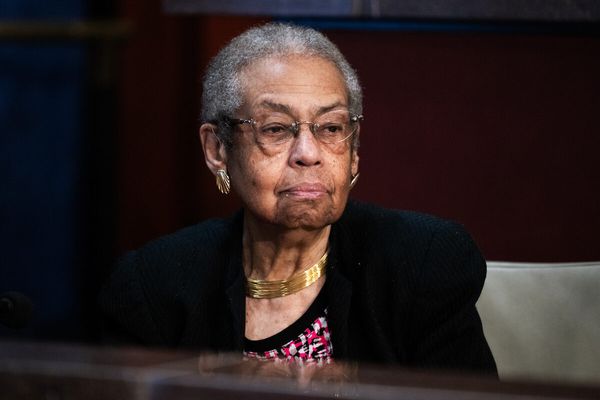
This is one renationalisation that even an ultra-cautious Labour had to embrace: voters like it, there is no upfront outlay, and the Conservative government has already done most of the work to get there.
The rail plans announced by shadow transport secretary, Louise Haigh, will confirm the longstanding Labour policy of taking national rail operations back into public ownership as contracts expire. Now, though, that appears to be an imminent reality, as all contracts are expected to lapse within four years of the coming election.
The industry is largely already in public hands; Network Rail has been on the state’s books since 2014, and four major English networks are being run by the Department for Transport’s own operator of last resort.
The success of the likes of LNER – run by the same management as the collapsed Virgin East Coast, but on behalf of the taxpayer – suggests there will be little for passengers to fear.
Ownership aside, Labour’s plans for a separate arm’s-length body to run the railway are very much on the track laid out by the Conservatives – underlined by the endorsement of Keith Williams, who drew up essentially the same scheme for Boris Johnson and Grant Shapps.
Notably, it is the first time Labour has publicly embraced their Great British Railways by the same name. The echoes of British Rail appeared to make the Tories alarmed at their own plans, and subsequent ministerial refettling to ensure a prime role for private operators ran, Labour argues, against its logic.
The problems identified by Williams included the fragmentation, waste and bureaucracy that beset privatised rail. Teams from track and train and government vied over roles, and legions of lawyers tried to establish which part of the railway bore responsibility for delays and compensation.
The Tories claimed GBR would save £1.5bn annually, and removing the additional “friction costs” of private sector involvement could cut another £700m, Haigh claims.
Full renationalisation might arguably include the rolling stock companies, or roscos, to ensure that Britain owns the trains rather than simply leases them – especially given the dividends that have exceeded the “profits leaking out to private operators” cited by Labour.
But that comes with expenditure that the party could not countenance in an election campaign. Instead, Labour have made clear that the roscos are onside.
It will also allow private “open access” train services, such as Lumo or Hull Trains, to continue, illustrating again that this renationalisation remains more pragmatic than dogmatic.
Beyond addressing rail’s ownership and structure, Labour’s plan contains one or two eye-catching proposals that give substance to the rhetorical flourish beloved of industry leaders and politicians of every stripe, to “put the passenger first”.
Guaranteeing a best-priced fare looks a solid principle to hasten the end of the confusing, multiple ticketing options that still trip passengers up. And a new Passenger Standards Authority, combining and streamlining the functions of the Office of Rail and Road and the Transport Focus watchdog, should have more teeth with which to hold the industry to account.
Labour will still have to deal with rail’s immediate crises, of falling commuter revenues and toxic industrial relations. If Aslef’s enthusiasm can translate into a deal to end strikes that the government admits have cost billions, it could give Labour a flying start.
For most who work on or use the trains, six years since reform was announced, arriving at a Great British Railways of any hue can’t come soon enough.







